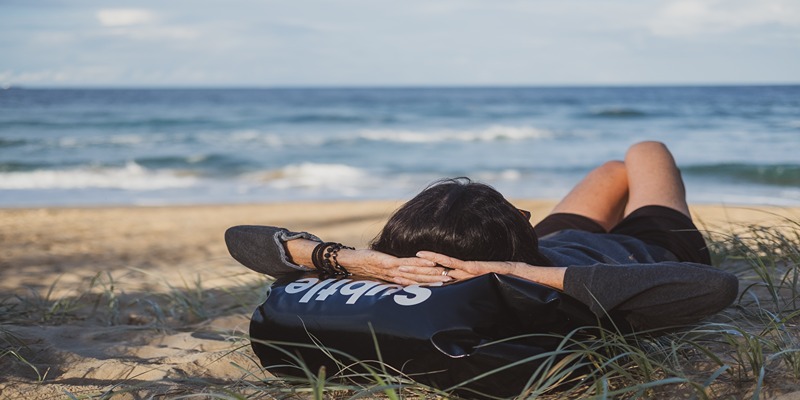Are you feeling lightheaded, exhausted, and faint due to the intense summer heat? You may be experiencing heat exhaustion, a condition brought on by extreme exposure to hot temperatures. Symptoms of heat exhaustion include heavy sweating, elevated body temperature levels, paleness of skin coloration and fatigue. If left untreated, this can lead to more serious health concerns such as dehydration or even potential life-threatening conditions like Heatstroke. In this blog post we will explore the causes and types of symptoms associated with Heat Exhaustion so that you are better equipped to seek treatment if needed. Read on for more information!
What is Heat Exhaustion ?

Heat exhaustion, also known as sunstroke or hyperthermia, is caused by increased body temperature levels due to extreme exposure to hot temperatures. It typically occurs when the body’s natural cooling system—sweating—fails to work effectively and keeps the body from regulating its temperature. Heat exhaustion can occur very quickly in hot and humid environments where your body is unable to cool itself down.
Symptoms of heat exhaustion:
There are several common symptoms associated with heat exhaustion including,
- Heavy sweating and/or clammy skin
- Elevated body temperature levels that can reach up to 104°F (40°C)
- Weakness, fatigue, dizziness, confusion
- Nausea and vomiting
- Pale skin coloration and low blood pressure Fainting or loss of consciousness
What Causes Heat Exhaustion and How to Avoid it:

Heat exhaustion is caused by extreme exposure to hot temperatures and can be avoided by taking necessary precautions such as wearing lightweight clothing that allows your skin to breathe, avoiding alcohol consumption before bed or in an outdoor setting, and taking frequent breaks when exercising outdoors.
Additionally, it is important to stay aware of the signs and symptoms associated with heat exhaustion so that you are better equipped to take proper action if needed.
Tips for Staying Healthy in the Heat & Preventing Heat Exhaustion:
- Stay Hydrated: Drink plenty of water to stay hydrated and help your body regulate its temperature in the heat.
- Avoid Alcohol Consumption Outdoors: Drinking alcohol can impair judgement and decrease your ability to take care of yourself when outdoors in hot environments.
- Use Sunscreen & Wear Lightweight Clothing: Protect yourself from sunburns by using sunscreen with a minimum SPF 30 and wear lightweight clothing that allows your skin to breathe in order to keep cool.
- Take Breaks When Exercising Outdoors: If you’re exercising outdoors, make sure to take frequent breaks and stay aware of the signs and symptoms associated with heat exhaustion so that you can properly address it if needed.
- Check on Elderly Family Members: Elderly family members are especially vulnerable to heat exhaustion so it is important to check on them and make sure they are taking necessary precautions when outdoors.
- Vaccinate Against Heat-Related Illnesses: Vaccinations are available for those who are at higher risk of heat-related illnesses. Speak with your healthcare provider about getting vaccinated if you may be susceptible to heat exhaustion or other related conditions. Vaccinating yourself and your loved ones against heat-related illnesses can help prevent the spread of disease and reduce the risk of health complications due to extreme heat exposure.
- Make sure to rest and take frequent breaks: Pay attention to your body, drink plenty of fluids, and watch your temperature levels. Doing these things will help keep you healthy during the summer heat season!
- Start slowly with light activities, such as walking or stretching, and gradually increase the intensity over time to help your body adjust. This will also help you build strength and stamina while reducing your risk of heat exhaustion.
Natural Remedies for Relieving Symptoms of Heat Exhaustion:
Natural remedies such as herbal teas, cool compresses, and cold baths can help alleviate some of the symptoms associated with heat exhaustion. Drinking plenty of fluids and resting in a cool environment can help your body reach its natural temperature regulation levels.
Conclusions:
Heat exhaustion is a serious condition that can be avoided by taking proper precautions such as staying hydrated, wearing lightweight clothing, avoiding alcohol consumption outdoors, and taking frequent breaks when exercising outdoors. Natural remedies such as herbal teas, cool compresses, and cold baths can help alleviate some of the symptoms associated with heat exhaustion. By following these tips as well as taking necessary precautions to prevent heat exhaustion in the first place, you can stay safe and healthy in the heat. Lastly, make sure to continue exercising after getting vaccinated—just remember to do so safely by adjusting your routine accordingly.




